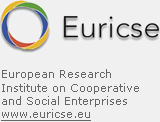This paper examines relationships between aging, social capital, and healthcare utilization. Cross-sectional data from the 2001 Canadian Community Health Survey and the Canadian Census are used to estimate a two-part model for both GP physicians (visits) and hospitalization (annual nights) focusing on the impact of community- (CSC) and individual-level social capital (ISC). Quantile regressions were also performed for GP visits. CSC is measured using the Petris Social Capital Index (PSCI) based on employment levels in religious and community-based organizations [NAICS 813XX] and ISC is based on self-reported connectedness to community. A higher CSC/lower ISC is associated with a lower propensity for GP visits/higher propensity for hospital utilization among seniors. The part-two (intensity model) results indicated that a one standard deviation increase (0.13%) in the PSCI index leads to an overall 5% decrease in GP visits and an annual offset in Canada of approximately $225 M. The ISC impact was smaller; however, neither measure was significant in the hospital intensity models. ISC mainly impacted the lower quantiles in which there was a positive association with GP utilization, while the impact of CSC was strongest in the middle quantiles. Each form of social capital likely operates through a different mechanism: ISC perhaps serves an enabling role by improving access (e.g. transportation services), while CSC serves to obviate some physician visits that may involve counseling/caring services most important to seniors. Policy implications of these results are discussed herein.
How selfish soever man may be supposed, there are evidently some principles in his nature, which interest him in the fortune of others, and render their happiness necessary to him, though he derives nothing from it, except the pleasure of seeing it. … That we often derive sorrow from the sorrow of others, is a matter of fact too obvious to require any instances to prove it; for this sentiment, like all other original passions of human nature, is by no means confined to the virtuous and humane, though they perhaps may feel it with the most exquisite sensibility. The greatest ruffian, the most hardened violator of the laws of society, is not altogether without it.
Adam Smith, The Theory of Moral Sentiments, Chapter 1, Part first.








